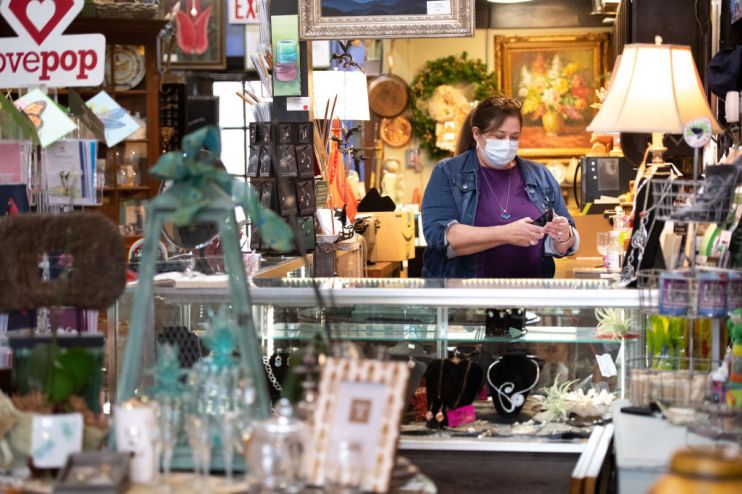Recovery plans must prioritise small businesses

If the UK economy is to get back on its feet as soon as possible following the extreme lockdown, there needs to be a small business-first exit strategy.
While it is right that decision is led by public health concerns, for the sake of our hugely important small business population, we need to understand the Government’s strategy for getting out of the lockdown as soon as possible.
Read more: City A.M.’s campaign to #SaveOurSMEs
Small business owners are the bedrock of our economy, contributing around £1.5 trillion per annum (37%) to UK private sector turnover, and they need to be given hope that an end to this crisis is on the horizon with a clear strategy that will lead them out of the economic crisis.
At Tide, we work with more than 150,000 small businesses, 1 in 40 of all UK SMEs. Based on our conversations with our members, we know that many small business owners are injecting their savings into their businesses to keep them afloat. They need to see some light at the end of the tunnel to give them an incentive to keep going and continue to fund their businesses, to the extent they are able to.
We believe the following three-stage approach would put small businesses in the best possible position to thrive in the future.
Stage one: Prioritise opening of small businesses
Small businesses have suffered disproportionately from the lockdown. Three quarters (75%) of small businesses said they had been negatively impacted by the crisis by the beginning of April. This rises to 80% when looking at the retail sector, and to 90% for the leisure and hospitality sector. Similarly, a quarter (24%) of small business leaders said they expect their business’s income to be 100% lower in April 2020 compared to April 2019 – this rises to a huge 60% in the hospitality and leisure industry, and 32% in retail. It has become clear that societies across the world will not be able to immediately bounceback to life before this crisis and that the re-opening of the economy will be gradual.
Allowing small businesses to re-open first, with social distancing measures in place, will give them a necessary head-start, and the opportunity to rebuild before it is too late. This is a strategy many European countries are taking. Austria allowed non-essential small shops to open on 14 April, as did Italy. Belgium, the Czech Republic, Denmark and Germany are among other nations that have taken this approach.
Stage two: Refocusing Government business support from rescue to recovery
The Government has introduced a number of very generous financial support programs to help keep small businesses afloat. Other than the Job Retention Scheme, though, they have not delivered on the scale necessary.
There is a case to be made that instead of radically overhauling these schemes the government should invest time in adapting them to support growth once the lockdown has been scaled back. With small business revenue set to decline by 57% by the end of April, it’s clear that the impact of the Covid-19 crisis will be far reaching, and it will be very difficult for the government to withdraw schemes such as the Job Retention Scheme and the Coronavirus Business Interruption Loan Scheme any time soon.
Transforming them into recovery schemes that look to support the revitalisation of the UK’s small business community would inject much-needed optimism and confidence, as well as tangible support. The focus in this stage would be the revitalisation of existing small businesses as well as to support entrepreneurs starting out in business. Next to tax breaks, start-out grants and loans will be vital instruments to drive a V-shaped recovery.
Stage three: Supporting UK small businesses to thrive in a post-coronavirus crisis world
It’s clear we must ready for a ‘new normal’, at least for the foreseeable future. We have heard some incredible stories of small businesses adapting quickly to digital models in order to survive. For example, Tide member Badger Commerce, a small e-commerce platform quickly introduced new features to allow businesses, particularly cafes and restaurants to continue to trade by accepting takeaway orders online through the platform.
At the same time as adjusting to a step-changed more digital environment, small businesses will need to adapt their business models to a more ecological and post-Brexit world.